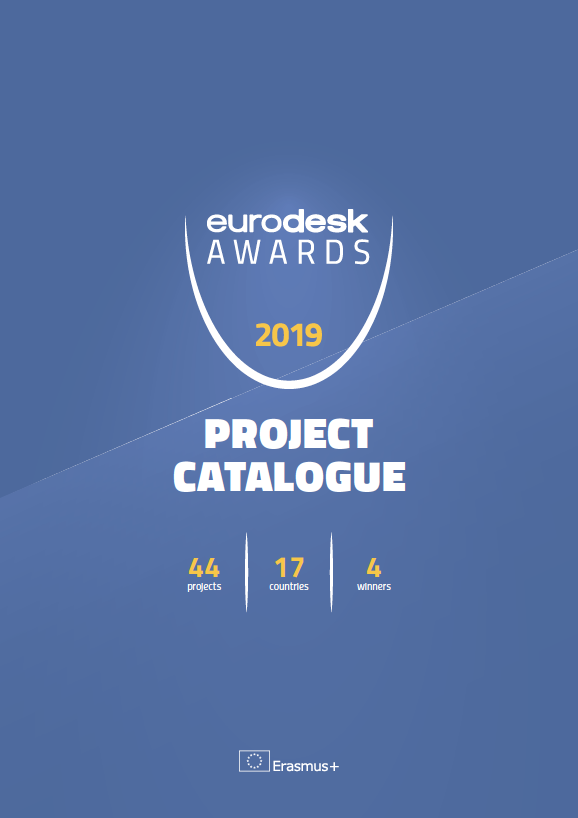About
The Eurodesk Awards started out in 2011 with a mission to collect Eurodesk youth workers' (multipliers) most relevant, innovative, empowering and impactful projects from the local level and highlight them to European Union institutions and other European level youth organisations as good practices. In 2019, the initiative received 44 projects from 17 countries in 3 main categories. The winners of the 3 categories were decided by a jury panel. The additional prize, called the Eurodesk Network Prize was decided by the Eurodesk network.
projects
countries
winners
The jury
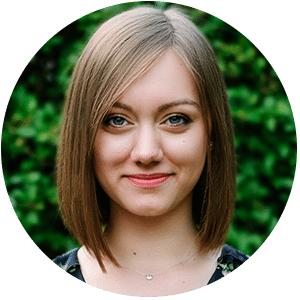
Tijana Stojanović
Vice-President Erasmus Student Network

Diana Bologova
Board Member European Youth Press
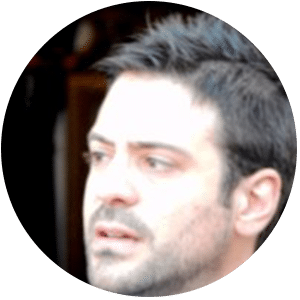
Michail Moschovakos
Policy Officer DG EAC European Commission

Claire Conlon
Exec. Committee Member Eurodesk
The winners
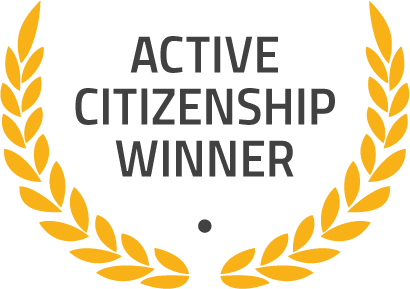
EYA - European Youth Ajò!
Centro Eurodesk Regione Sardegna
Italy
The project European Youth Ajò aimed to encourage active and democratic participation of young Sardinian people, informing them about the opportunities provided to citizens by the European Union, and involving them directly in activities of youth empowerment and active participation.
In Italy, and especially in Sardinia – an island in the middle of the Mediterranean Sea which presents one of the highest percentages of youth unemployment and early school leaving in Italy and suffers from emigration, little involvement in associations and low youth participation – young people feel remote from public life and show reluctance to take on an active role in society.
Created and financed by the Autonomous Region of Sardinia and coordinated by the Eurodesk Center (which coordinates the Sardinian net of Eurodesk Local Points), the project European Youth Ajò has involved 7 Eurodesk Local Points (Cagliari, Sestu, S. Antioco, S. Anna Arresi, Iglesias, Dorgali and Sassari), 8 Eurodesk operators, the students of 11 classes of 8 senior High Schools, and 15 of their teachers. It engaged 200 students and about 300 people during the final presentation event.
Non-formal education methods explained the opportunities that the EU offers to young people. For example students took part in an activity entitled “Caro Juncker ti scrivo...” (“Dear Juncker, I’m writing to you...”) in which the boys and girls illustrated the needs they felt as citizens of the EU.
Overall 2.000 brochures were distributed about opportunities of transnational mobility, about Eurodesk, European Youth Portal and Erasmus+, but the number of people indirectly reached at family and friends level through word of mouth is certainly greater, considering the renewed interest in the Eurodesk Local Points.
10 young students of the involved high schools had the opportunity to participate in the European Youth Event EYE 2018, which took place in Strasbourg in June. The students have been involved in activities of storytelling and in the Human Library activity, organised by Eurodesk.
https://www.cagliari.eurodesk.it/
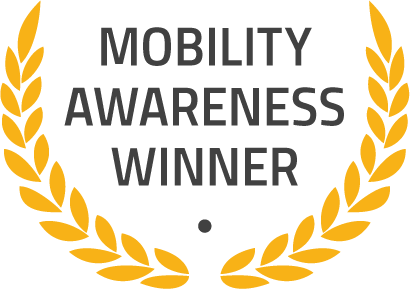
Eurodesk Garden
Europe4Youth and Fundacja Rozwoju Międzykulturowego EBU
Poland
The Eurodesk Garden project was made possible by a partnership between Europe4Youth and EBU. It consisted of several interconnected events aimed at encouraging young people to mobility and civic/social engagement, informing them about youth mobility programmes and tools for civic/social engagement on local and European level.
The project was directed to young people aged 16-23 years from regions around Kraków and Mińsk Mazowiecki (five different cities and small towns), especially to those with fewer opportunities and from remote areas. Therefore, the organisers visited schools, worked with teachers and policy makers to create a good condition for the implementation of the project, as well as for the future presence of European information for young people in schools and municipalities.
Each partner organised five workshops in schools in the regions. Workshops were of two types: mobility opportunities game (volunteering, work, studies, chances, project implementation, programs for youth) and activeness game (simulation on participation in public life of their own city/village, game on the role of the European Parliament).
During a series of consultation meetings (five per partner) for young people interested in applying for European opportunities and participation in civil society, the participants were instructed on how does this work, where to start, where to apply, who to contact.
Opening Parties of Eurodesk Garden included games (board games, skills-games, information-games), treasure hunt and info-meetings with young people, decision makers and consultants networked.
Moreover, a contest was launched for young people (Mobility-TREE) having them describe their most fruitful mobility experience on a Christmas decoration. By sharing their stories, they were encouraging their peers to pursue mobility opportunities too. The stories had two versions: online (a picture of a decoration with text) and offline (a physical Christmas decoration hanged on a tree in the Eurodesk Garden). Participants of the contest were collecting “likes” on Facebook and Instagram, those who collected the most won. In this way the social circles of the contest participants got informed about the experiences and opportunities offered by the EU.
The organisers partnered up with 18 organizations and public institutions. Over 300 young people took part in the activities, the European Youth Portal gained 40-50 new users and around 20 applications for voluntary placements all around Europe were filed. Around 10 project ideas came out of this, Eurodesk was presented in 10 schools and the Mobility-TREE contest got over 500 reactions on Facebook.
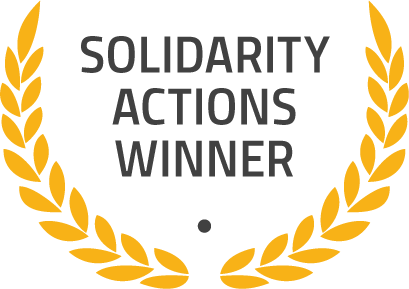
HERE WE ARE
Együttható Egyesület / Association Co-Efficient
Hungary
Együttható Egyesület / Association Co-Efficient offers innovative community services for young people, providing them with opportunities to find and accomplish their personal goals. It is a multiplier within the Eurodesk Hungary network.
Its project Here We Are was an 18 months long transnational youth initiative connecting two mixed ability groups in Hungary and Portugal to work for and to promote the inclusion of young people living with disabilities who still face countless barriers and exclusion when it comes to their daily lives and the majority society is often blind to these challenges. The project aimed to help the informal groups to organise their own events, campaigns and media communication to bring attention to the matters and importance of inclusion, while developing their competences and empowering themselves through the co-operation.
Throughout the 18 months the groups organised 12 high-visibility activities focusing on the life of young people living with disabilities – e.g. wheelchair flash mob, alternative fashion show, sensitization in schools, escape game with changed abilities etc. – beside attending regular group meeting and four transnational meetings.
During the project the groups co-operated with various services, institutions and volunteers engaged in the activities. Schools, afterschools, universities, community spaces, escape rooms, shopping malls, production studios, festivals were providing venue for the implementation of the activities. Special transport services and personal assistants were working to support the group in their work.
The project actively involved six (initially seven) people in the Hungarian group plus four people in the Portuguese group, plus the coordinating mentors (2-2 people). All the activities were promoted with online campaigns, then followed with posts, blog journal logs, photo gallery shares. The portrait documentary has 17.000 views on Youtube. Other press releases and the social media and blog activity reached many thousands of people.
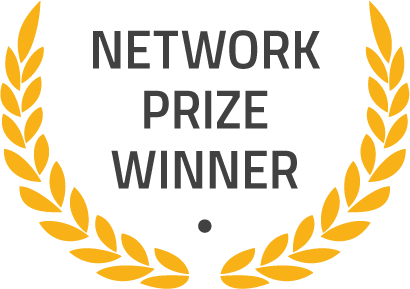
Treasure hunt: Pronađi ruksak!
Youth Association Alfa Albona
Croatia
Treasure hunt: Pronađi ruksak! is a project of Youth Association Alfa Albona, a non-profit and non-political association of young people, established in 2011. Its main fields of work are youth information (it is the leading regional youth information centre and one of Eurodesk multiplicators), mobility of young people and youth workers (it implements youth exchanges, training courses, study visits, ess/esc programmes, internships and international summer camps) and social entrepreneurship (it holds 3 national awards for the best idea/innovation/project about social entrepreneurship, co-owns social cooperative Humana Nova istra that works with reusing and recycling the textile and employs young people with dissabilities and from vulnerable groups).
The project aimed to promote mobility and its benefits to young people by encouraging active participation in the local community. The organisers hid 50 Eurodesk bags, containing magnets with mobility quotes, Eurodesk and Erasmus+ programme flyers, around the town in 50 different places then made the treasure map and the announcement about when the treasure hunt will start. It was an interactive and innovative approach in providing information on European opportunities for young people that resulted in a huge number of participants -they were eager to find the bags and more information about the European opportunities, share the status and pictures online while searching for the bags as well as a lot of new young users and promoters of European opportunities.
The activity was posted on different social media, presented in the local community and on two different association websites: our official website and our informational website, as well as sent to our database of young people. All of this has directly reached a total of 8000 young people in local and wider community.
The honourable mentions
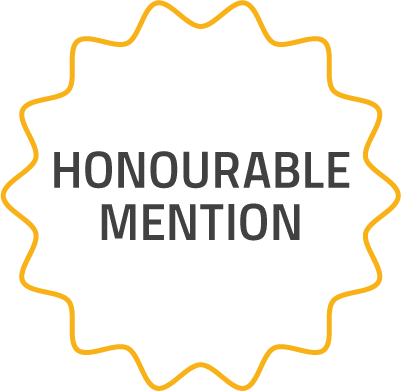
Postcards from the Edge of Europe
Bryson Charitable Group
United Kingdom
Postcards from the Edge of Europe is a project of Bryson Charitable Group, the Northern Ireland's social enterprise active in the delivery of sustainable responses to existing and emerging social need. Bryson has been involved in European Voluntary Service since its inception and is carrying on this work into Erasmus + and European Solidarity Corps. Its main role is as a coordinating and hosting organisation, but it also delivers the Training and Evaluation Cycle within Northern Ireland, sends a very small number of volunteers to other countries and is a Eurodesk UK Partner Organisation.
As part of Culture Night Belfast 2018, Postcards from the Edge of Europe gave an opportunity for members of the public to write a love letter or break up message to Europe during Brexit days, as well as to play European themed board games and listen to a European themed Spotify playlist. Brexit is a very divisive issue, especially in Northern Ireland which has the only EU land-border in the UK and which has been without a sitting government since January 2017.
The aim was to encourage people to think about and express their feelings about being part of the European Union, while raising awareness of Eurodesk and Time to Move by using Time to Move postcards.
The project involved wider public, EVS/Erasmus+ Volunteers and Bryson staff members. 59 postcards were written by people wishing to express their feelings about Brexit. 62 people participated in a mock vote to say whether they wanted to see a “Deal”, “No Deal” or a “Second Referendum”. 60 school children took part in the Postcards from the Edge of Europe exercise in their schools, after teachers attending Culture Night brought postcards back to their schools to use in teaching about Democracy.

European Mobility: Starting with parents
Rosto Solidário
Portugal
European Mobility: Starting with parents is a project aiming to encourage participation in Youth Mobility by engaging parents and having them on-board – based on the video: “Make no mistake. Get informed”. This was a joint initiative of Portuguese Eurodesk Multipliers Rosto Solidário, NGO, and Youth Office of Santa Maria da Feira Municipality.
Portuguese Multipliers have been realizing - from their daily work with youth - that despite the progress on the access to opportunities within Erasmus+, most of the parents are still afraid to support and let their kids go and take part of learning mobility project or initiative. A video was created to change this - with the testimonials of parents whose sons and daughters have participated in youth exchanges, volunteering projects and training courses. After listening to these parents saying how important the learning opportunity was for their children other parents were more likely to let their own children go and participate in European Union learning mobility opportunities. By showing that this kind of opportunities are a way to gain new skills, new knowledge and better understanding of European citizenship the project also aimed to disseminate information and foster active citizenship among Portuguese youngsters.
Local Municipality supported the project by disseminating the public call for parent testimonials and providing the video recording and editing means. All the activities and administrative issues were shared by involved Eurodesk Multipliers. The video was spread via two institutional websites and four social networks targeting not only parents but young people and the general community. The video was also shared within Eurodesk Portugal network, consisting of almost sixty youth related organisations. Following the purpose of the project, the video was presented in the annual local education summit, reaching 200 teachers and other educational stakeholders.

Mobili.TV: 'Higher Education in Europe' Special
Ajuntament de Barcelona
Spain
Mobili.TV is a project of the Barcelona city council’s youth department. This project is about making information comprehensive and dynamic for young people who could be interested in studying abroad by creating a TV show. During the show presenters interviewed educational experts from DAAD Spain, Campus France and British Council, and two former Erasmus+ students. Online audience was able to ask questions via Twitter and 150 youngsters attended the show.
This project indirectly encouraged young people to become active citizens, having the example of a couple of students from the same country that have moved to study abroad. Those students after moving abroad felt more European and saw other ways to do things, since they went outside their comfort zone; this was explained through their presentations and also seen in their videos.
The Mobili.TV was opening the international mobility campaign, “De BCN al món. Del món a BCN” (From Barcelona to the world. From the world to Barcelona), with nine series of talks about different topics related to international mobility. It came with a short video to introduce the campaign, a logo for the Mobili.TV show and another video to promote the Mobili.TV show. All videos (including final summary) had been later posted on YouTube. The video that was promoting the TV show on an international mobility Facebook page (fb.com/mobilitatinternacional) reached 1.251 people; the Facebook posts of Barcelona Youth Information Centres reached 2.261 people. Another important way to promote the event was through the website of the whole campaign of “De BCN al món. Del món a BCN” (barcelona.cat/bcnalmon) that received a total of 2.318 visits during the months of October and November.
https://ajuntament.barcelona.cat/joves/es

Inclusive Volunteering
Disability and Development Cooperation (Behinderung und Entwicklungszusammenarbeit e.V.)
Germany
Inclusive Volunteering (German: Teilhabe im internationalen Engagement) is a project by bezev, Disability and Development Cooperation (Behinderung und Entwicklungszusammenarbeit e.V.). Launched in 2017, it aims to make (not only but especially) volunteering programs more accessible for everyone. By working with people with impairments/disabilities, sending and hosting organizations, educational institutions, disabled persons organizations, counselling offices, policy makers and public financiers, the organisation informs, trains and connects the relevant stakeholders. With project activities it has encouraged hundreds of young people with impairments/disabilities to volunteer abroad and in Germany, built a network of organisations which are interested in inclusive volunteering and lead the process of many changes in volunteer services towards a more inclusive program structure.
Bezev has organised 100+ events in the last years to specifically reach the target group of young people with impairments/disabilities, e.g. at schools, disabled persons organizations and trade fairs. It provided accessible information online, in print and at events for young people with impairments/disabilities about possibilities to volunteer. The young people were encouraged by being shown success stories of other persons with impairments/disabilities volunteering abroad, often using a peer-to-peer approach at the events. The organisation also offers more in-depth consultations on all day-to-day questions concerning accessibility as well as meeting and financing additional needs in other countries via email, phone, or in person, so the young people can make educated decisions on safe, nurturing and fun volunteering commitments.
Since 2012 the organisation consulted approx. 500 young people with impairments/disabilities and knows of at least 150 volunteers that have gone abroad with its support and/or involvement. bezev has built an international network of 100+ organizations that are interested in including young people with impairments/disabilities in their work. It has also published the insights and experiences made in the last years in four guidelines on different key issues for inclusive volunteering, which gives hands-on answers and suggestions to questions and problems concerning working in inclusive groups of young people with and without disability. It also provides interested organisations with flyers and posters free of charge so they too can advertise their inclusive attitude.

Welcoming Library
Purchena Youth Information Office
Spain
Welcome Library is a project developed by the Public Library and the Youth Information Office of Purchena (Andalusia) which is at the same time Eurodesk Multiplier. In this small town, inland of the province of Almería, there are four minor centers that welcome young people at serious risk of exclusion, young refugees and migrants (13-17 years old) from different countries (Nigeria, Morocco, Senegal, Ivory Coast, Sierra Leona).
The Public Library and the Youth Info Office, wanting to become a meeting place for these young people and local youngsters, promotes the "Welcome Library" project in collaboration with several cultural and social associations of the town. The Youth Info Office, as a member of the Eurodesk Network, informs and advises these young people about mobility and obligations/ rights in Europe.
The project aims to promote effective inclusion and integration of young migrants with difficult backgrounds who are living in three Minor Centres in Purchena since they do not usually engage within the local community. The equation is simple: if these young migrants are not linked to the local population, they can hardly be active European citizens.
This project involved these young people in peer to peer activities in which, at the same time, they were taught Spanish, by local volunteers, and other languages, by European volunteers of the Erasmus + program. They were also provided with information on opportunities in Europe by the qualified Eurodesk multiplier of Purchena.
Youth associations and local volunteers collaborated directly on the project by providing literacy classes in Spanish and other languages as well as activities for contacting young migrants with young people in the municipality.
32 events took place, two per week from September 2018 to March 2019. The participants were 124 local youngsters from 14 to 30 years and 196 young migrants from 14 to 18 years old.
Thanks for all participating organisations
Youth and Civil Initiatives inthe Rose Valley NGO
Europe Direct Information Centre of Komotini
Comune di Sassari
Informagiovani del Comune di Sarezzo
PLUSEAST Cultural Association
County Direction for Sport and Youth Constanta County, Romania
Tepebaşı Belediyesi 19 Mayıs Gençlik Merkezi
Sorgun Kaymakamlığı
Doğal Yaşam Derneği
The IARS International Institute
Youth Focus NW
JugendService
Netzwerk International
Agora Nonprofit Kft. – A Vértes Agorája
KYS Youth Information Service & Cross Care Youth Information
Youth Information/Eurodesk Tipperary - Youth work Ireland Tipperary
OPENCOM i.s.s.c.
Agenzia Eurodesk – Europe Direct Comune di Trieste
Kandava multifunctional youth initiative center "Nagla"
Youth initiative cenre of Kekava municipality
Aluksne Children and Youth Centre
Sempre a Frente Foundation
Fundacja Centrum Aktywności Twórczej
Youth Department of the City Council of Santa Maria da Feira
Rato - Associação para a Divulgação Cultural e Científica
Bonae Spei - Associação Cultural
Celjski mladinski center
Ankara Yıldırım Beyazıt University
VanValilik
Gaziantep Training and Youth Association
yipworld
akzente Salzburg - Regionalstelle Lungau
Malik Cultural Association
Izmir Governorship
British Youth Council
PUBLISHER
Eurodesk Brussels Link
Place Stephanie 6
1050, Brussels
Belgium
[email protected]

This website has been funded with support from the European Commission. Eurodesk.eu reflects the views of the author (Eurodesk) only, and the Commission cannot be held responsible for any use which may be made of the information contained therein.
© Eurodesk, 2024. Eurodesk is a registered trademark of Eurodesk Brussels Link.
